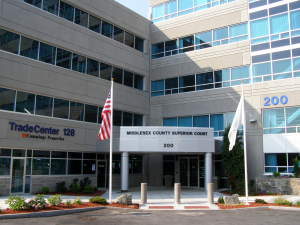Hiring a Civil Litigation Lawyer: Lessons from a Successful Case

Last month, I obtained a favorable decision in a Superior Court lawsuit. As a civil litigation lawyer, I generally focus on real estate matters, including landlord-tenant matters, zoning issues, and boundary disputes. This case was a different area of law than I usually handle, but still concerns some incredibly relevant topics on succeeding in a civil litigation matter.
This case concerned a claim of emotional distress, where my client was accused of committing conduct that caused the opposing party to suffer severe anxiety, depression, and distress. These types of claims are a high burden to meet: the law generally requires a strong case of misconduct for such a claim.
To defend my client, I focused heavily on the extensive case law concerning this particular emotional distress claim. The law only allows such a claim in very limited circumstances, which I focused on when preparing our defense.
A successful civil litigation attorney takes advantage of discovery, the process by which a party is allowed to learn about the other side’s claims and defenses. In this case, I forced the other side to admit that they didn’t satisfy several of the requirements for their claim.
Many people, understandably, think that every legal proceeding ends in a trial, like we see on TV or movies. In reality, many claims can be resolved without a trial, through a dispostive motion, which asks the court to make a ruling on the merits of the overall claim, without a trial.
Here, I made a motion for summary judgment. Summary judgment is a final decision on a legal claim, where the relevant facts are not in dispute. Rather than go through a trial, summary judgment permits the judge to make a final decision on a case.
The decision for a civil litigation attorney to request summary judgment should not be made lightly. Summary judgment is only allowed when the facts are undisputed. If a case concerns a scenario where the parties disagree about the relevant facts, summary judgment will not be allowed.
I’ve seen too many cases where a civil litigation attorney requests summary judgment when the facts are clearly in dispute. Doing so is a waste of the client’s time and simply delays bringing the case to trial.
In this case, I believed summary judgment was appropriate, and a good use of my client’s time and money. The Court agreed, and ruled in our favor! This decision brought this matter to an end without a trial, and saved my client considerable time and money.
As a civil litigation attorney, there is no better feeling than getting your client a successful outcome in a case. It is especially gratifying when I’m able to do so at minimal time and expense for my client.
If you need assistance with a civil litigation matter, contact me for a consultation.
